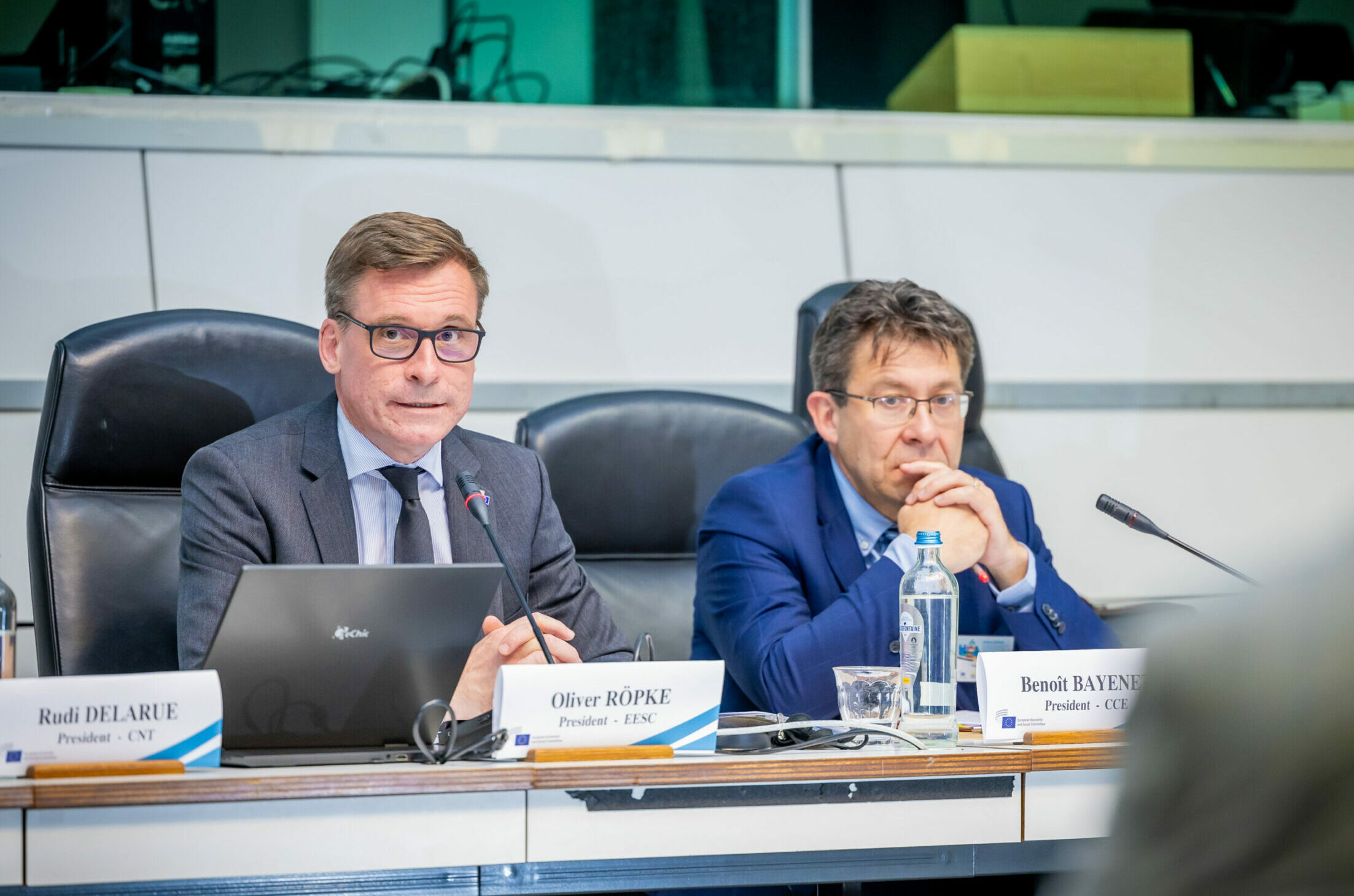The triggering of the excessive deficit procedure for Belgium will pose a "very big" challenge for the State, as it cannot cut public spending at the expense of the green and digital transitions, the head of the Central Economic Council (CEC) has said.
Last week, the European Commission proposed that an Excessive Deficit Procedure (EDP) should be put in place for Belgium and six other Member States that are not meeting minimum EU budgetary requirements.
The procedure will require Belgium to reduce its deficit by at least 0.5% of GDP per year, either by cutting spending or boosting tax revenues.
Benoît Bayenet, President of the Central Economic Council (CEC) told The Brussels Times that reducing Belgium’s budget deficit will "not be as easy as just reducing expenditure," as the country has growing investment demands from many different sectors.

Oliver Röpke, President of the European Economic and Social Committee (EESC), and Benoît Bayenet, President of the Central Economic Council (CEC), at Thursday's economic seminar. Credit: CEC / Claudio Gregolin
Bayanet was speaking at a seminar on Thursday, co-hosted by the CEC, which was one of the final events of Belgium’s European Council Presidency before it hands over to Hungary in July. The seminar highlighted the role of dialogue with social and civil stakeholders as the EU tackles the digital and green transitions, while remaining competitive.
"The challenge for the government is on one hand, to find a way to have sustainable public finances, and on the other to find a solution to challenges of ageing, the climate transition, the digital transition, and also defence with conflict now at the frontier of Europe," said Bayanet.
Caretaker government cannot make call on budget spending
It is expected that recommendations for all Member States subject to an EDP will be published in the autumn, but the Commission met with the Belgian caretaker government on Friday for closed door discussions about the State’s spending trajectory.
Bayanet pointed out that another challenge for Belgium in dealing with the EDP is the disruption of elections this year, as interim caretaker governments cannot make big decisions about budget spending.
"The problem in Belgium is that there is no government. The first thing you need to have is a government to decide the sustainable trajectory path for public finances," he said.
"Then the second problem is that in Belgium only 50% of expenditure is at a federal level, so it’s impossible for the federal government to decide alone. It could mean that the discussions in Belgium with different levels of government will be very long," he added.
Oliver Röpke, President of the European Economic and Social Committee (EESC), also spoke at the seminar on Thursday. He said that the new EU economic governance framework, which includes the excessive deficit procedure, is a “tool to promote sustainable and inclusive growth”, and will “provide Member States with greater leeway in setting their own fiscal adjustment path”.

